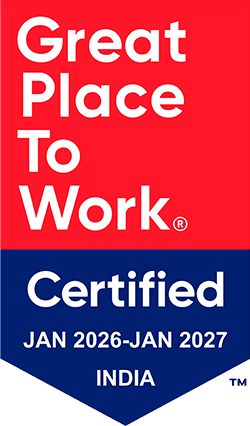1. Introduction
The Ministry of Corporate Affairs (MCA), through its notification dated 30th May, 2025, has notified the Companies (Accounts) Second Amendment Rules, 2025, which shall come into effect from 14th July, 2025. The amendment brings significant changes to the compliance landscape related to financial statement filings under the Companies Act, 2013.
2. Objective
The primary objective of the amendment is to:
- Enhance transparency and accountability in statutory disclosures
- Encourage digitisation through mandatory use of e-Forms
- Standardise disclosure practices across companies
- Strengthen corporate governance, especially concerning workplace ethics and compliance with labour-related laws
3. Effective Date of the Companies (Accounts) Second Amendment Rules, 2025
The Companies (Accounts) Second Amendment Rules, 2025 shall come into force on 14th July 2025. From this date, companies will be mandatorily required to adhere to the revised disclosure norms and updated filing requirements prescribed under the amended rules.
4. Key Changes Introduced
(i) Mandatory Disclosures in Board’s Report:
As per Women at Workplace (Prevention, Prohibition and Redressal) Act, 2013, companies must disclose:
- Number of sexual harassment complaints received
- Number of complaints disposed of
- Number of cases pending for more than 90 days
(ii) New Affirmation on Maternity Law Compliance
A significant addition introduced under the Companies (Accounts) Second Amendment Rules, 2025 is the requirement for companies to include a compliance declaration with the Maternity Benefit Act, 1961 in their Board’s Report. The Act provides key entitlements to women employees, such as paid maternity leave, medical bonuses, nursing breaks, and creche facilities for eligible establishments meeting prescribed thresholds.
Accordingly, companies must now include a formal statement in the Board’s Report affirming that they are in full compliance with this legislation. This measure aims to reinforce the company’s commitment to fostering a safe, equitable, and supportive workplace for women during and after pregnancy.
(iii) Enhanced Filing Requirements under AOC-4 and Related Forms
Companies must mandatorily attach the following in PDF format while filing:
- Extract of Board’s Report
- Extract of Auditor’s Report (Standalone)
- Extract of Auditor’s Report (Consolidated), as applicable
- Duly signed financial statements (in XBRL filings)
(iv) Digitalisation of form AOC-1 and AOC-2
As part of the Companies (Accounts) Second Amendment Rules, 2025, the Ministry of Corporate Affairs has made it mandatory for companies to file e-Form AOC-1 and e-Form AOC-2 electronically.
Earlier, these disclosures were often attached manually to the Board’s Report, but the new rules aim to streamline the process through digital submission.
E-Form AOC-1 captures key financial information related to the company’s subsidiaries, associate companies, and joint ventures, helping shareholders and stakeholders understand the financial position of related entities.
E-Form AOC-2 provides details of related party transactions under Section 188(1) of the Companies Act, 2013, ensuring such dealings are transparent and do not result in conflicts of interest.
(v) Filing of extract of Board’s Report and Auditor’s Reports electronically
Under the Companies (Accounts) Second Amendment Rules, 2025, companies must now file extracts of the Board’s Report and Auditor’s Reports electronically.
The extract of the Board’s Report should include key disclosures such as sexual harassment complaints and compliance with the Maternity Benefit Act.
Companies must also file the Auditor’s Report (Standalone) and, if applicable, the Auditor’s Report (Consolidated).
This change aims to make financial and compliance information more transparent, structured, and easily accessible to stakeholders.
5. Conclusion
The amendment marks a decisive step towards greater digitisation, robust compliance, and disclosure-based governance. Companies should realign their internal processes and reporting formats in line with the new e-Form requirements and enhanced Board’s Report disclosures. The introduction of workplace-related affirmations also highlights the MCA’s increasing focus on social accountability and employee welfare within corporate India.
For more details, refer to the MCA Notification dated 30th May, 2025:
https://www.mca.gov.in/bin/dms/getdocument?mds=66fWnH2N0N54KmnyYkVIrQ%253D%253D&type=open
DISCLAIMER: – The summary information herein is based on notification issued by Ministry of Corporate Affairs dated 30th May, 2025. While the information is believed to be accurate, we make no representations or warranties, express or implied, as to the accuracy or completeness of it. Readers should conduct and rely upon their own examination and analysis and are advised to seek their own professional advice. This note is not an offer, advice or solicitation. We accept no responsibility for any errors it may contain, whether caused by negligence or otherwise or for any loss, howsoever caused or sustained, by the person who relies upon it.
To download the pdf file of the above post, please click on the download button below.
About Our Regulatory Advisory & Support Services
DPNC Global LLP is a full service consulting firm providing multi-disciplinary services to clients ranging from MNCs, Indian Corporates from across industries to Family Offices and UHNIs, both in and outside India.
Our Regulatory Advisory & Support Services team consistently works towards providing simple and practical solutions to complex issues. Any entity operating in India would need to navigate the dynamic eco system and endeavour to ensure due regulatory compliance with the wide spectrum of applicable legislations. We advise & assist clients to be fully compliant with a wide spectrum of applicable regulations including Company Law, Limited Liability Partnerships (LLP) Act, SEBI Regulations, Non-Banking Financial Companies (NBFCs) Law etc. To know more about our services, visit https://dpncglobal.com/regulatory-advisory-support/


